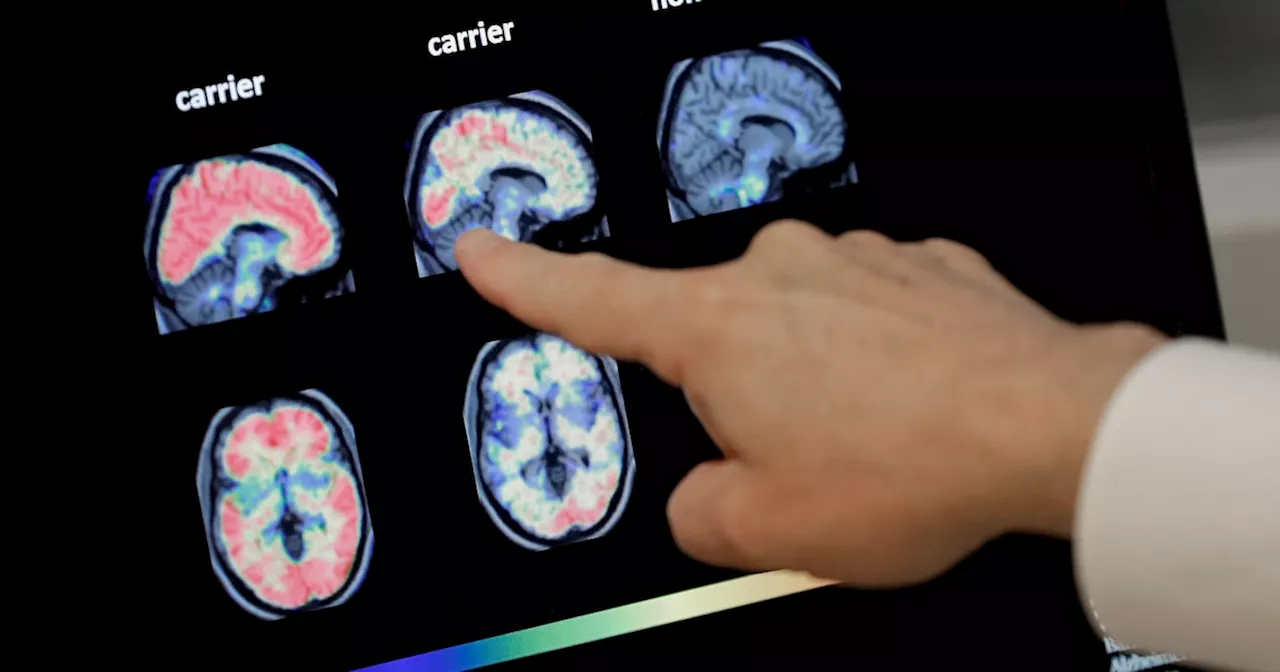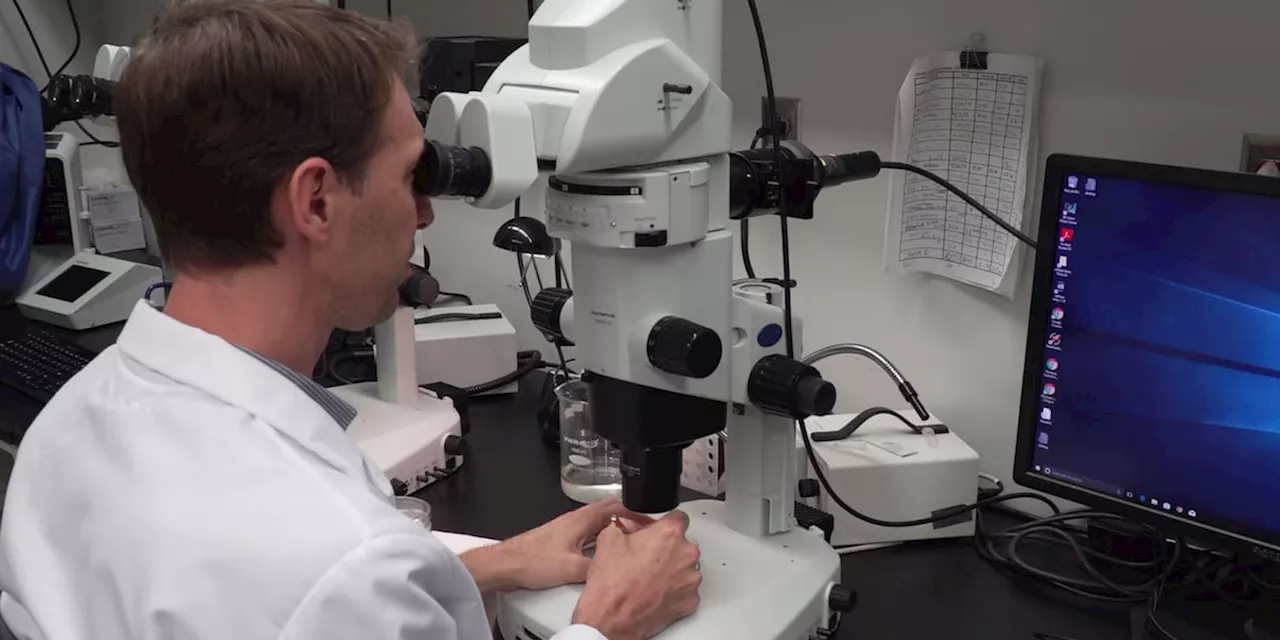Scientists identify neurons in the brainstem that appear to regulate when we stop eating, potentially paving the way for new treatments for obesity.
Scientists have made a groundbreaking discovery about the neural mechanisms controlling our eating habits. In a study published in the journal * Science *, researchers identified a group of specialized neurons in the brainstem, a region evolutionarily conserved across mammals, that appear to regulate meal termination.
These neurons, responding to a symphony of signals generated during eating, integrate information about food quantity detected by oral receptors, gastric fullness, and circulating hunger hormones. This intricate interplay of cues ultimately triggers the sensation of satiety, prompting us to cease consuming.The study, conducted primarily in rodents, revealed that these neurons, known as cholecystokinin (CCK) neurons, play a critical role in determining meal size. By genetically modifying mice to control the activity of their CCK neurons using light, the researchers observed that activating these neurons led to significantly smaller meals compared to unmodified mice. Furthermore, the degree of activation directly correlated with the speed at which the modified mice stopped eating. These findings strongly suggest that CCK neurons act as a brake on food intake, controlling the duration and amount consumed during each meal.While the research is still in its nascent stages and further studies are needed to confirm the presence and function of analogous CCK neurons in the human brainstem, the implications are profound. If these findings translate to humans, they could pave the way for novel therapeutic strategies for obesity and other eating disorders. The discovery that CCK neurons can be activated by exendin-4, a drug already used in the treatment of type 2 diabetes, opens exciting possibilities for repurposing existing medications to target overeating. Moreover, understanding the precise mechanisms by which these neurons regulate feeding behavior could lead to the development of more targeted and effective weight-management interventions
NEURONS BRAINSTEM EATING SATIETY OBESITY TREATMENT
United States Latest News, United States Headlines
Similar News:You can also read news stories similar to this one that we have collected from other news sources.
 Scientists Pinpoint Brain Neurons Linked to SUDEPResearchers at Southern Methodist University have made a breakthrough in understanding sudden unexpected death in epilepsy (SUDEP) by identifying specific neurons in the brain's corticolimbic system that appear to trigger the deadly chain reaction. This discovery sheds light on the complex interplay between seizures, breathing, and heart function in SUDEP, offering potential avenues for future research and interventions.
Scientists Pinpoint Brain Neurons Linked to SUDEPResearchers at Southern Methodist University have made a breakthrough in understanding sudden unexpected death in epilepsy (SUDEP) by identifying specific neurons in the brain's corticolimbic system that appear to trigger the deadly chain reaction. This discovery sheds light on the complex interplay between seizures, breathing, and heart function in SUDEP, offering potential avenues for future research and interventions.
Read more »
 3D-Printed 'Brain-Like' Environment Reveals How Neurons Form NetworksResearchers at Delft University of Technology have developed a 3D-printed 'brain-like' environment using nanopillars to mimic the soft neural tissue and extracellular matrix fibers of the brain. This innovative model provides new insights into neuronal growth, network formation, and the potential impact of neurological disorders.
3D-Printed 'Brain-Like' Environment Reveals How Neurons Form NetworksResearchers at Delft University of Technology have developed a 3D-printed 'brain-like' environment using nanopillars to mimic the soft neural tissue and extracellular matrix fibers of the brain. This innovative model provides new insights into neuronal growth, network formation, and the potential impact of neurological disorders.
Read more »
 Scientists gave ketamine to baby fishes. Here’s what happenedAstrocytes — brain cells that communicate with neurons — became more active during the testing.
Scientists gave ketamine to baby fishes. Here’s what happenedAstrocytes — brain cells that communicate with neurons — became more active during the testing.
Read more »
 Microplastics and Nanoplastics Found in High Concentrations in Human Brain TissueA new study published in February 2023 reveals the alarming presence of microplastics and nanoplastics in human brain tissue, raising concerns about the potential health implications of these tiny plastic particles. Researchers found significantly higher concentrations of MNPs in brain tissue compared to other organs, challenging the notion that the blood-brain barrier effectively protects the brain from these pollutants. The study also highlights the unexpected shapes and types of plastic found in the brain, suggesting that the long-term effects of microplastic exposure remain largely unknown.
Microplastics and Nanoplastics Found in High Concentrations in Human Brain TissueA new study published in February 2023 reveals the alarming presence of microplastics and nanoplastics in human brain tissue, raising concerns about the potential health implications of these tiny plastic particles. Researchers found significantly higher concentrations of MNPs in brain tissue compared to other organs, challenging the notion that the blood-brain barrier effectively protects the brain from these pollutants. The study also highlights the unexpected shapes and types of plastic found in the brain, suggesting that the long-term effects of microplastic exposure remain largely unknown.
Read more »
 Bacteria Found Thriving in Fish Brains, Raising Questions About Human MicrobiomeRecent research has provided compelling evidence that bacteria can exist in the brains of healthy vertebrates, specifically fish. This challenges the long-held belief that the brain is protected from outside microbial invasion by the blood-brain barrier. The study, published in Science Advances, found diverse communities of bacteria in the brains of salmon and trout, with some species showing adaptations to survive in brain tissue and cross the blood-brain barrier. While fish physiology differs from humans, this discovery raises intriguing possibilities about the existence of a human brain microbiome and its potential impact on neurobiology.
Bacteria Found Thriving in Fish Brains, Raising Questions About Human MicrobiomeRecent research has provided compelling evidence that bacteria can exist in the brains of healthy vertebrates, specifically fish. This challenges the long-held belief that the brain is protected from outside microbial invasion by the blood-brain barrier. The study, published in Science Advances, found diverse communities of bacteria in the brains of salmon and trout, with some species showing adaptations to survive in brain tissue and cross the blood-brain barrier. While fish physiology differs from humans, this discovery raises intriguing possibilities about the existence of a human brain microbiome and its potential impact on neurobiology.
Read more »
 Forever Chemicals Found to Disrupt Brain Cell Genes, Raising Concerns About NeurotoxicityA new study reveals that 'forever chemicals' can alter genes responsible for healthy neuron function, potentially leading to neurological problems. The study highlights the need for further research to understand the long-term health effects of these pervasive pollutants.
Forever Chemicals Found to Disrupt Brain Cell Genes, Raising Concerns About NeurotoxicityA new study reveals that 'forever chemicals' can alter genes responsible for healthy neuron function, potentially leading to neurological problems. The study highlights the need for further research to understand the long-term health effects of these pervasive pollutants.
Read more »
